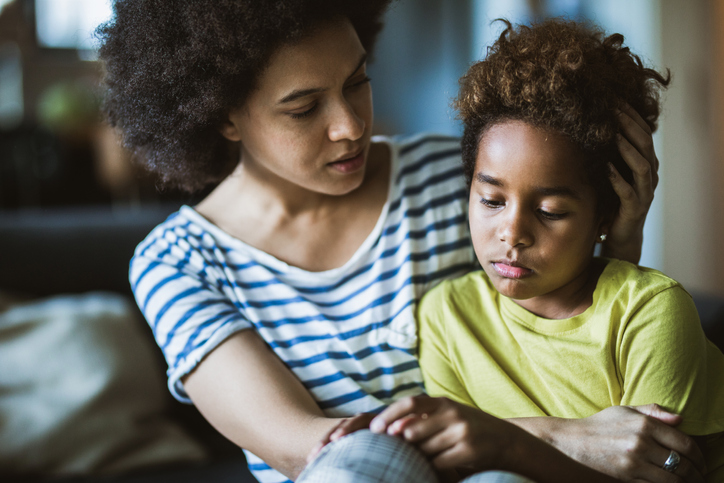
How to Help Kids and Teens Through the Coronavirus Pandemic
Since the novel coronavirus COVID-19 came to the United States, life has changed significantly for everyone. Parents everywhere are worried about the logistics of child care, serious financial concerns, and the physical health of loved ones. On top of all of these worries, it is normal for parents to wonder how all of this will affect the mental health and well-being of their children.
Our community of behavioral health professionals is here to help. Below are some things you can do as a parent to help support your child’s mental and emotional health during this difficult time:
Acknowledge and Accept Your Child’s Emotions
Because COVID-19 is impacting everyone’s way of life and there is a large degree of uncertainty about the future, it’s important to expect strong emotional reactions from children. Although children and teens may not be good at articulating or identifying their concern, they still feel many of the same emotions that adults experience in times of crisis. While every person’s reaction is unique, don’t be surprised if your child shows:
- Anxiety
- Sadness
- Loneliness
- Anger
- Irritability
- Hyperactivity
- Impulsivity
- Lack of motivation or boredom
- Changes in sleep or appetite
Your child is most likely to show one of the above rather than saying, “I’m scared about COVID-19.” Try to acknowledge a range of feelings in an age-appropriate way rather than saying, “don’t worry” or “don’t be mad.” Of course, it can be difficult for you to see your child struggle with these stronger emotions and to manage new behavioral issues. Remind yourself that these feelings and behavioral problems will gradually subside as your family establishes a new routine.
Limit Exposure to News Coverage
COVID-19 seems to be the only story in the news and other media now. While this is understandable, the overwhelming coverage can hurt anyone’s mental health. Although it may not seem like children and teens are listening to the news, they often absorb all of that information on some level. While you don’t have to keep everything a complete secret, limiting how often your child hears about the virus can help keep anxiety at bay.
Dealing with Loneliness and Boredom
Without important social outlets, people of all ages are likely to experience loneliness and boredom. While it’s important to accept that some level of these feelings will persist during the quarantine period, you can curb both of these feelings as well.
In order to stop loneliness in its tracks, you can allow your children to reach out to friends and family via video calls. Giving them plenty of time to socialize in age-appropriate ways that follow public health guidelines will be important for their continued development as well. Identify several times during the day where children also get their parents undivided attention: that is no TV, phones, or other distractions pulling the adult away from being with their children.
Busting your child’s boredom may be difficult during the entire duration of social isolation. However, it will be important for the mental health of everyone in your family. Many companies and organizations are offering free resources for families in this situation, including:
For Entertainment and Development
- All Kids Network – free crafts and worksheets
- Audible – offering free stories for kids and teens
- Cosmic Kids Yoga – a YouTube channel that infuses storytelling and yoga
- GoNoodle – get kids moving and playing with this fun app
- Brooklyn Public Library – offering virtual storytime daily
- Monterey Bay Aquarium – take a virtual field trip to one of the most renowned aquariums in the world
- San Diego Zoo – watch the animals through the zoo’s live cameras
- The Kennedy Center – learn about drawing from an artist
For Homeschooling
- Khan Academy – one of the leading online learning resources
- Museums – many famous museums are offering free online tours
- National Geographic Kids – many videos and other education resources
- 2Simple Purple Mash – tool for learning all kinds of subjects
- Bedtime Math – making math as much a part of your routine as bedtime stories
- Kiddie Science – offering free science lessons and experiments for learners 2+
It’s important to remember that one of the most important things you can do is to simply let your kids play. Children learn through play. Furthermore, allowing your kids to figure out how to entertain themselves (without screens) is a vital part of development.
Learning to Let Go of Certain Fears
Perhaps the most important thing you and your children can do is to learn how to let go of fears over which you have no control. This is a difficult exercise for people of all ages, but it is incredibly valuable in uncertain times. Working through this as a family can help you grow closer as well.
Together, make a list of all the fears you might have. For example, you may worry about how long the shutdowns will last, if you can keep a positive attitude, and when the stores will be stocked again. Together, label which fears you can control and which fears you can’t. You may come up with something like this:
Then, agree to let go of all the fear over which you have no control. After all, continuing to worry about these things will not solve your problems. It would only rob you of your happiness. Of course, letting go is easier said than done. As a family, you can hold each other accountable on this front and remind each other to let go when it’s needed.
Reach Out for Help
Although quarantines and social distancing leave many people feeling lonely, you are not in this alone! If you are struggling with your own mental health or you’re not sure how to best help your children, reach out. We are offering telehealth services to new and existing patients in order to serve the community and keep everyone safe. Together, we can get through this.

